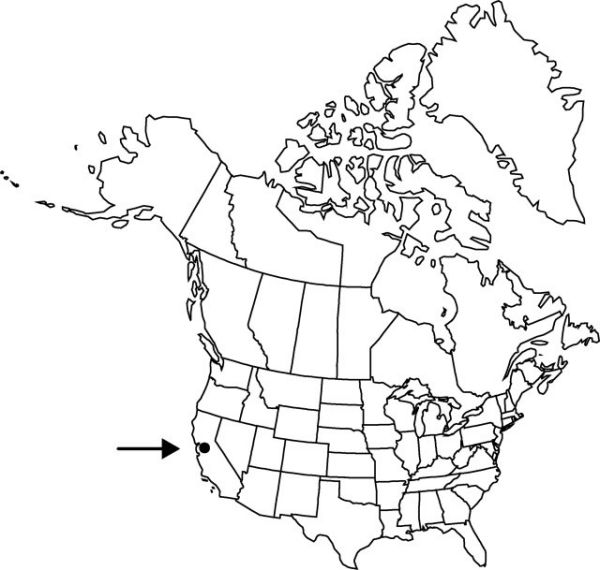Difference between revisions of "Allium sharsmithiae"
Aliso 13: 417. 1992.
FNA>Volume Importer |
FNA>Volume Importer |
(No difference)
| |
Revision as of 21:42, 16 December 2019
Bulbs usually solitary, not clustered on stout, primary rhizome, ovoid to globose, 1–1.8 × 1–1.5 cm; outer coats enclosing bulb, reddish brown, membranous, lacking cellular reticulation or cells arranged in only 2–3 rows distal to roots, ± quadrate, without fibers; inner coats pale brown, cells obscure, quadrate. Leaves persistent, withering from tip by anthesis, 1, basally sheathing, sheath not extending much above soil surface; blade solid, terete, 15–25 cm × 1–4 mm. Scape persistent, solitary, erect, solid, terete, 4–17 cm × 1–2.5 mm. Umbel persistent, erect, compact, 5–50-flowered, hemispheric, bulbils unknown; spathe bracts persistent, 2–3, 3–8-veined, lanceolate to lance-ovate, ± equal, apex long-acuminate to setaceous. Flowers urceolate, 10–18 mm; tepals erect, deep reddish purple, linear-lanceolate to lance-ovate, ± equal, becoming rigid in fruit, margins entire, apex acute to obtuse, recurved-spreading at tips; stamens included; anthers yellow; pollen yellow; ovary crested; processes 6, prominent, ± triangular, margins entire, surfaces usually papillate; style linear, equaling stamens; stigma capitate, 3-lobed, lobes slender, recurved; pedicel 6–19 mm. Seed coat dull or shining; cells minutely roughened. 2n = 14.
Phenology: Flowering Apr–May.
Habitat: Serpentine clay soil on talus slopes
Elevation: 500–1100 m
Discussion
Of conservation concern.
Allium sharsmithiae is known only from the Mount Hamilton Range.
Selected References
None.
